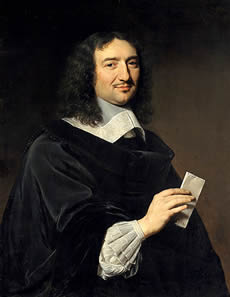 |
| Jean-Baptiste Colbert |
Colbert became Louis XIV’s comptroller (minister of finance) in 1665 and held that position until 1687. France’s financial system had been plagued by corrupt and weak administration, and funds collected scarcely made their way to the proper authorities. Due to Colbert’s investigations, superintendent of finance Nicolas Fouquet (1615–80) was tried for embezzlement in 1661 and imprisoned for life.
The office of superintendent was abolished, and numerous other officials lost their positions. Colbert restructured French finances, which were thereafter ruled by a council of finance bound to a new set of accounts to keep to the budget.
Colbert reduced interest rates on France’s public debt to free funds for other projects. He made tax collections and distributions so efficient that he reaped a 50 percent tax decrease in costs. Soon, he managed to increase France’s net revenues by 30 million livres.
Colbert also oversaw the corvée, the much despised free labor that peasants owed to their lords. He was a gifted financier and administrator, but he found it exceedingly difficult to control Louis XIV’s extravagant spending, which often brought French to the brink of bankruptcy.
A mercantilist intent on market reforms, Colbert expanded commerce and maintained a positive trade balance. He also pushed for protective tariffs and subsidies and introduced government control over commerce and trade in 1644 with price and quality controls. He declared more than 100 edicts to govern guilds. With an eye toward the world market, he introduced the luxurious silk trade, Venetian glass blowing, and Flemish cloth trades to France.
Colbert initiated massive roadwork projects and had the Canal of Languedoc built to facilitate easier commercial communication. His model factories used specific production standards to ensure quality along with volume. He closely supervised colonization costs by establishing the French East Indian Company and the French West India Company.
In 1669, Colbert became marine minister. He ordered arsenals and harbors to be built including the ports of Rochefort and Brest. He immediately wrote new navigation laws and then instituted the merchant marine and the French navy. To improve the navy’s training and patriotism, he established naval schools and instituted a system of classes for the service to ensure loyalty.
Every seaman would provide six months of service once within a four-year period in which he would receive full pay and then receive half-pay and a pension when these conditions were met. To fill up the ranks, Colbert used condemned criminals, North American Indians, and slaves to serve in the navy.
A patriot of France, Colbert declared new codes to centralize power in the monarchy. These included a civil code in 1667, a criminal code in 1670, a commercial code in 1772, a marine code in 1681, and colonial codes in 1685. Because he believed in the superiority of French art and science, his avid support of these institutions led him personally to found at least four major prestigious French academies.
Although Colbert had dealt with various challenges with the extravagant King Louis XIV, the king’s decision to declare war on the Netherlands in 1672 forced him to change some of his basic policies. For example, he had no choice but to raise funds for the war by increasing taxes, selling office, and borrowing money. Despite Colbert’s track record prior to the war, these unpopular policies created strong dissent.
Moreover, he had never really gained much support within court circles, probably because of the power he wielded. For all his efforts to make improvements at all levels of France, he was not rewarded with the appreciation of his countrymen. Still, most historians consider him a great French statesman. Colbert died on September 6, 1683.